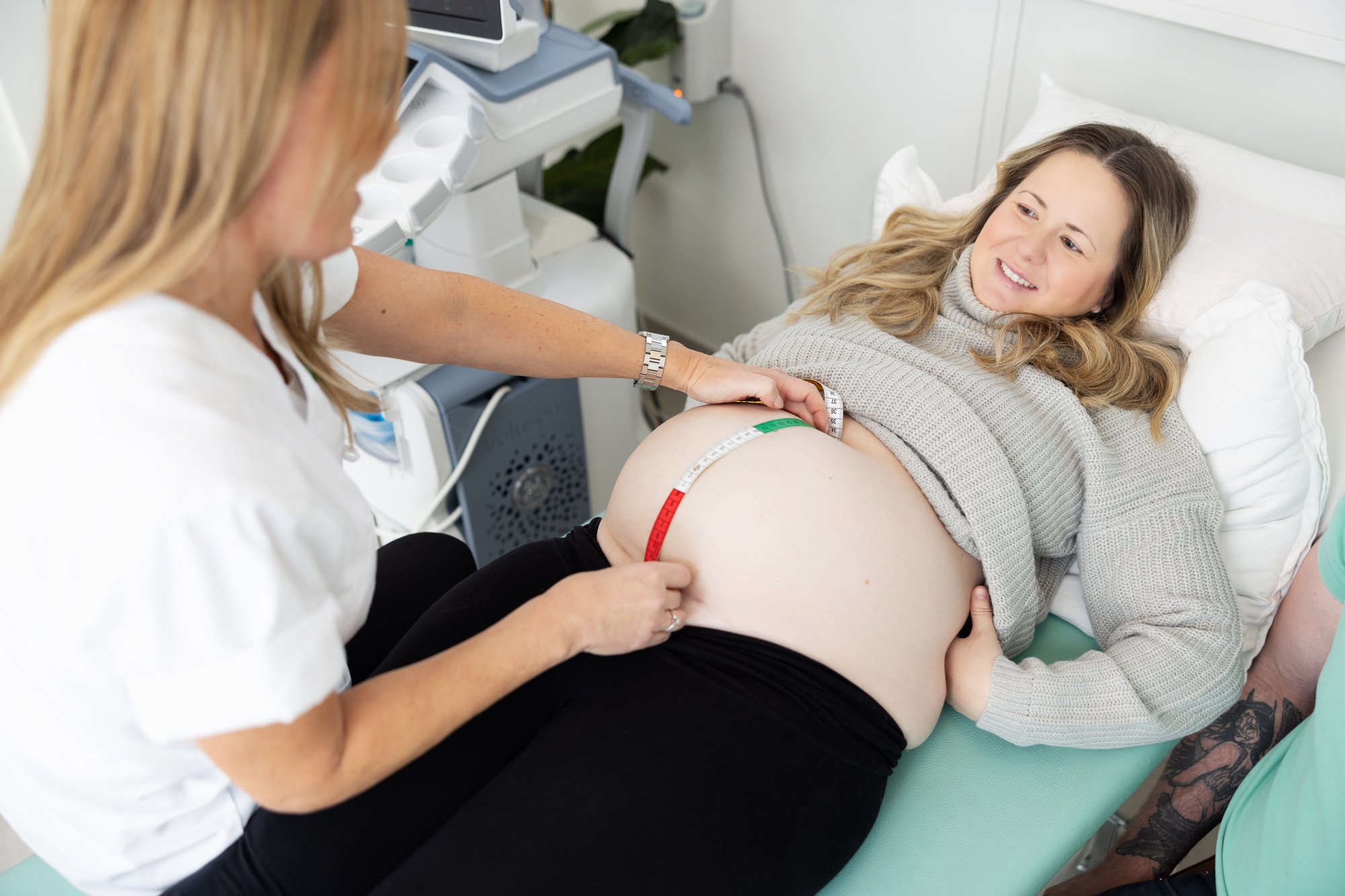
PRENATAL CARE
Based on The Norwegian Directorate of Health’s guidelines, the purpose of maternity care is to ensure that the pregnancy and the birth proceed in a natural way for mother and child.
“The mother’s somatic and mental health, and social well-being should be ensured in the best way possible. The prenatal care should further ensure the health of the foetus so that the baby is born viable and without disease and injury that might have been prevented."
This should be ensured through pregnancy check ups. When you’re pregnant, you can choose whether you want to go to a midwife or your GP for the check up.
If you need further assistance, you will be referred to the specialist health service, which usually will be the hospital where you will give birth.
The World Health Organization (WHO) estimates that the proportion of pregnant women with a condition or risk factor that requires special care beyond the usual range is about 25% of all pregnant women.
The Directorate of Health recommends a basic program with nine check ups up until and including pregnancy week 41, including an ultrasound in pregnancy weeks 17–19.
Due Date Calculator
Are you wondering how many weeks pregnant you are? Enter the first day of the last menstrual period here.
Prenatal care checkups: what do we do?
First check up: week 8–12 of pregnancy
- Topics like lifestyle habits, information on natal care, social security rights, and information about tests taken during pregnancy that you should be informed about so that you can make informed decisions.
- Mapping to find out if you need extended follow-up beyond the ordinary natal care program, and if so, planning this follow-up.
- You will be informed about genetic prenatal diagnostics and genetic guidance on indication.
- You will be informed about blood type and antibodies, screening for anaemia (Hb), rubella (German measles), HIV, and syphilis, hepatitis B and C, for women it might concern.
- You will be informed about the urine test as screening for asymptomatic bacteria in the urine, this especially concerns those who have previously had several urinary tract infections.
- You will be informed about ultrasound screening in week 17–19.
- Calculate BMI, measure blood pressure, and proteinuria and glucosuria.
- Be assessed for sickle cell anaemia or thalassemia; for ethnic groups where this is relevant.
- Take chlamydia test if you’re under 25 years of age or if there are any signs.
- You will receive the consumer version of natal care and information about ultrasound.
Second check up: week 17–19 of pregnancy
- Gestational age will be assessed, i.e. measure the size of the foetus to calculate the exact due date.
- Identify those pregnant with twins.
- The location of the placenta in the uterus will be examined.
- The anatomy of the foetus will be examined.
Third check up: week 24 of pregnancy
-
- Review, discuss, and take note of the results of tests taken at the first check up. Furthermore, assess whether you need additional follow up or referral to a specialist.
- Become informed about preparation for birth and parenting courses.
- Measure the size of the uterus, blood pressure, weight, and test for proteinuria and glucosuria.
- Listen to the souffle (heart sound) of the foetus and be informed you that you should be sensing movement in the womb.
Fourth check up: week 28 of pregnancy
- Measure the size of the uterus, blood pressure, weight, and test for proteinuria and glucosuria.
- Listen to the souffle of the foetus and address the topic of sensing movement.
- Breastfeeding information.
- Discuss your health during pregnancy.
Fifth check up: week 32 of pregnancy
- Measure the size of the uterus, blood pressure, weight, and test for proteinuria and glucosuria.
- Rh-negative women are tested for antibodies.
- Listen to the souffle of the foetus and address the topic of sensing movement.
- Address the topic of breastfeeding and preparing for this.
- Discussing your health during pregnancy.
Sixth check up: week 36 of pregnancy
- Measure the size of the uterus, blood pressure, weight and test for proteinuria and glucosuria.
- Listen to the souffle of the foetus and address the topic of sensing movement.
- Consider the position of the child, and, if there’s any suspicion of the baby lying in a breech position, confirm this with ultrasound.
- Rh-negative: new antibody test.
- Discussing your health during pregnancy.
Seventh check up: week 38 of pregnancy
- Measure the size of the uterus, blood pressure, weight, and test for proteinuria and glucosuria.
- Listen to the souffle of the foetus and address the topic of sensing movement.
- Consider the position of the child, and, if any suspicion of breech position, confirm this with ultrasound.
- Discussing your health during pregnancy.
Eighth check up: week 40 of pregnancy
- Measure the size of the uterus, blood pressure, weight, and test for proteinuria and glucosuria.
- Listen to the souffle of the foetus and address the topic of sensing movement.
- Consider the position of the child, and, if any suspicion of breech position, confirm this with ultrasound.
- Discussing your health during pregnancy.
Ninth check up: week 41 of pregnancy
- Measure the size of the uterus, blood pressure, weight, and test for proteinuria and glucosuria.
- Listen to the souffle of the foetus and address the topic of sensing movement.
- Consider the position of the child, and, if any suspicion of breech position, confirm this with ultrasound.
- Refer to overtime assessment.

Other midwifery services

Birth preparation conversation
Many people feel the need to have a conversation with a midwife when the time of childbirth is approaching. Most women have many thoughts, questions and feelings about this that they want to discuss. We offer this service at our clinic.

Post partum check up
Approximately 6–8 weeks after childbirth, a post partum check up of the new mother is recommended, also called the “six-week check up”.
The purpose of this consultation is to find out whether the mother is doing well or not, both physically and mentally. This is the beginning of life after the birth, and it is natural that it is the midwife who does this check up.

Midwife conversation
Do you have anything at all you want to talk/discuss with the midwife? At our clinic, you can have individual conversations with a midwife both before and during pregnancy, and after giving birth. You are of course most welcome to bring a partner!
.jpg?width=200&height=117&name=OJUK%20logo_m%20bindestrek%20(002).jpg)